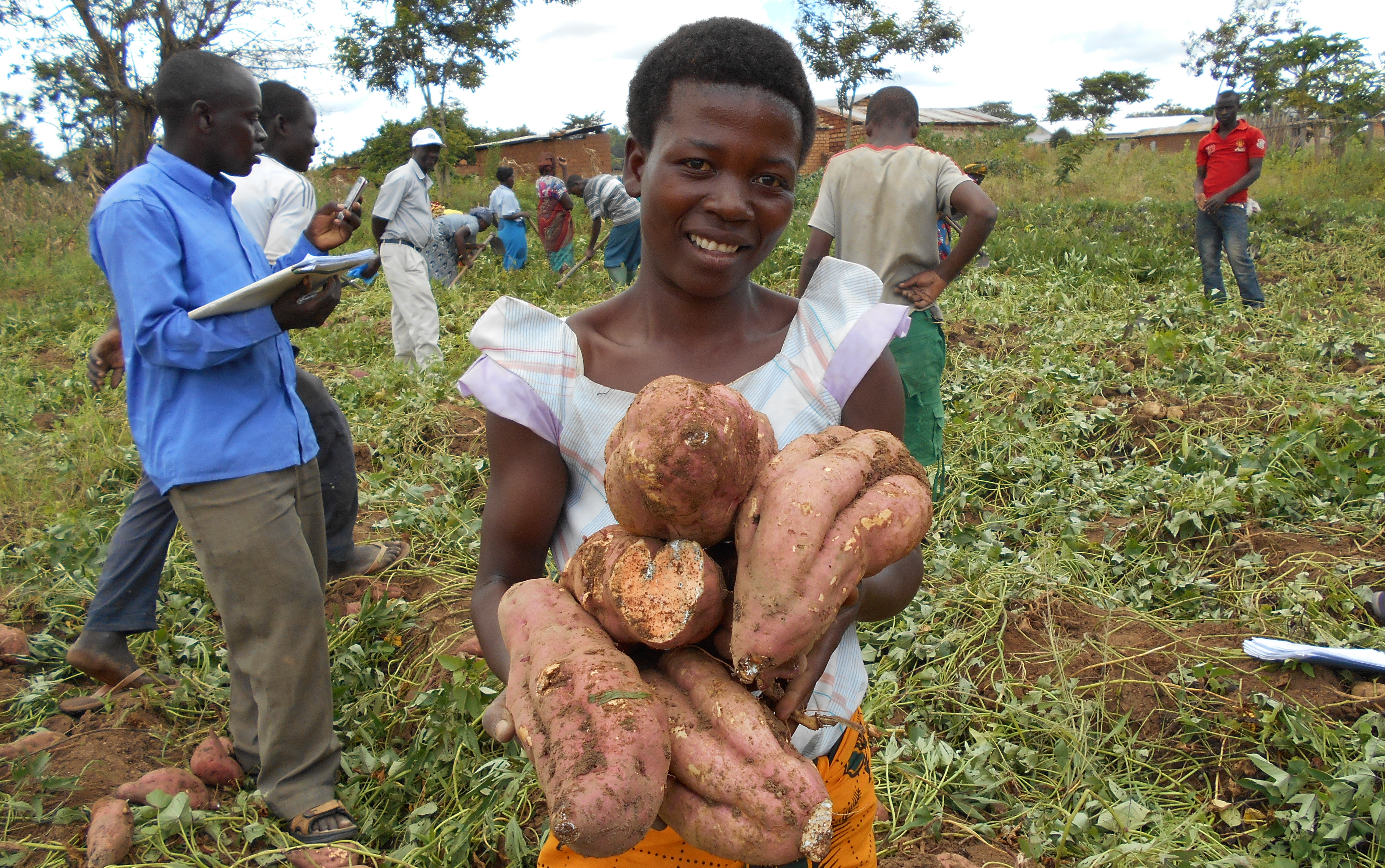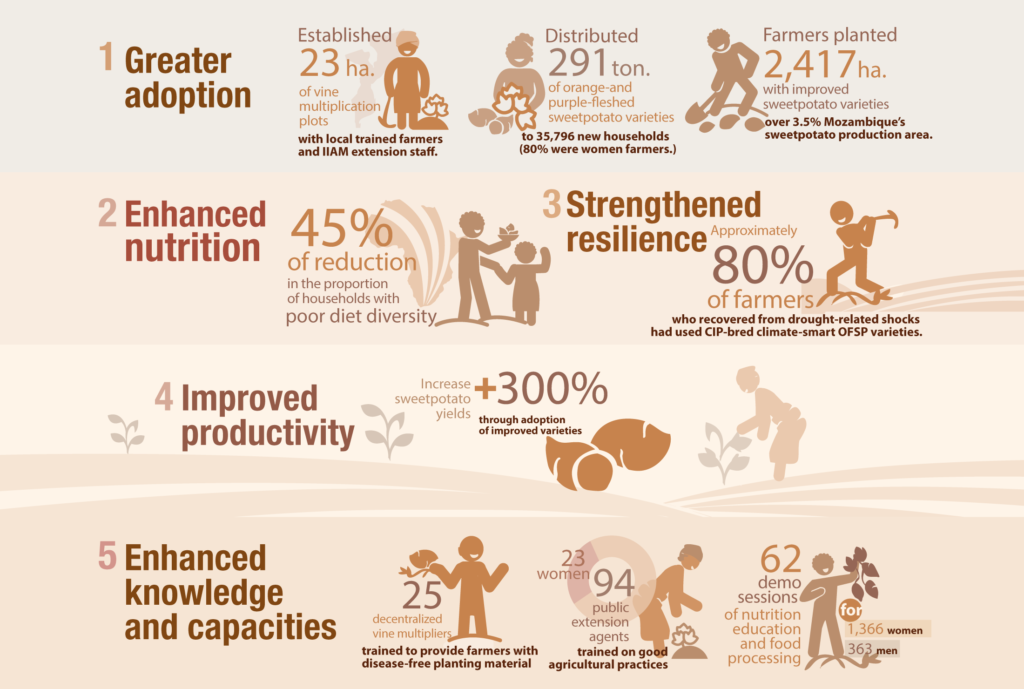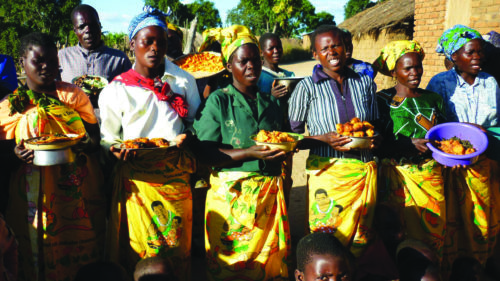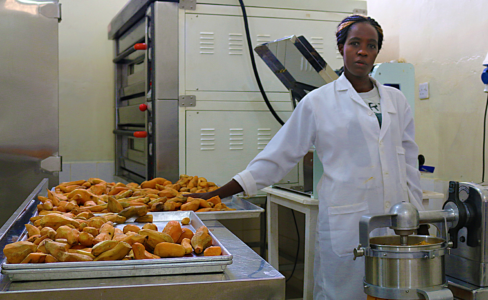
Mozambique suffers from floods and droughts that can decimate crops but sweetpotato offers reliable yields under a range of adverse environmental conditions. This project builds on CIP’s work to increase production and consumption of sweetpotato in selected areas. It focuses on distributing disease-free planting material, training seed producers and smallholders in growing, harvesting and marketing the crop, as well as working to raise awareness of ways to introduce sweetpotato into people’s diets, particularly targeting households with children under five years old.

Crippling, recurrent droughts and floods have decimated vast swaths of Mozambique over the last two decades years. Farmers have lost crops and seen their fields destroyed, leading to acute food insecurity in certain provinces.
Sweetpotato has been shown to be one of the most effective crops for disaster relief in many parts of Mozambique as it provides reliable yields under a range of adverse environmental conditions. Sweetpotato leaves can be eaten two months after planting and the roots are ready to harvest after three months. Furthermore, biofortified orange-fleshed sweetpotato (OFSP) varieties are an extremely effective source of vitamin A for young children and women. Half a cup of boiled and mashed OFSP can meet the recommended daily intake requirements of a child under five years of age. And compared with other crops in Mozambique, sweetpotato planting material is the least expensive.
However, because farmers plant vines, producing enough planting material in areas with a prolonged dry season is challenging for poor households without access to irrigation or wetlands. Farmers usually conserve some of their roots in the fields so that they sprout again with the onset of seasonal rains, but, drought or pests can kill many of those roots. This particularly affects farmers who live in districts that lack low-lying wetlands that retain residual moisture through the long dry seasons.
This is why the International Potato Center (CIP) has developed more drought-tolerant OFSP varieties, and trained farmers in techniques to preserve planting material and in good agriculture practices for seed systems.
Objectives
Increase food security and improve the diets of 24,000 poor households (120,000 people) in drought-affected communities through improving production and consumption of OFSP in 20 target districts of Gaza, Inhambane, and Maputo Provinces.
Approach
Building on an earlier project (August 2016-17), entitled Mitigating drought impacts in southern Mozambique through resilient, nutritious sweetpotato, this project—funded by the United States Agency for International Development— focused on the 2017/18 and 2018/19 sweetpotato planting seasons. During the earlier project, CIP and the Mozambique Institute of Agricultural Research (IIAM) developed and released new drought-tolerant, orange and purple-fleshed sweetpotato varieties, bringing the total number of resilient and nutritious varieties available for dissemination and cultivation to 22. During the 2016-17 period, the two organizations reached about 23,000 households in droughtaffected provinces with improved planting materials.
This latest intervention has coordinated the mass distribution of disease-free planting material sourced from established OFSP vine multipliers and from new, decentralized multiplication plots. The project trained local multipliers in techniques for selecting, cutting, handling and packaging planting material. The team also supported multipliers to undertake marketing activities for their planting materials and sweetpotato roots—using radio and mobile phone adverts—to create demand in local markets.
Local farmers received training on protecting their vines from disease using rapid multiplication techniques, net tunnels to protect them from virus-spreading insects, disease detection methods and positive selection techniques. They also learned harvesting techniques and in-ground and above-ground ‘curing’ of roots, which can reduce losses during storage, particularly from weevils and rot. In areas where sand was available in sufficient quantities, farmers were taught how to construct and maintain below-ground ‘ladder pits’ where sweetpotato roots could be stored in sand for months.
Targeting vulnerable households with children under five, CIP worked closely local health centers and community health agents to raise awareness and understanding of the nutritional benefits of OFSP. The project organized regional nutritional demonstrations focusing on the value of OFSP as a post-breastfeeding weaning food, as well as participating on local community radio programs. The demonstrations included food preparation, general diet and ways to combine OFSP with other local foods.
Contact
Maria Andrade
CIP, Mozambique
m.andrade@cgiar.org
Thanks to our donors



